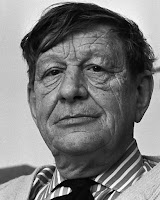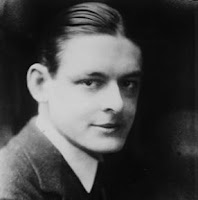You could answer one of the two questions presented below:
 1. The Nonaggression treaty signed between the Soviet Union and the Nazi Germany in August 1939 contained, as you know well, the secret protocol, stipulating the division of spheres of influence between the parties of the treaty "in the event of a territorial or political rearrangement."
1. The Nonaggression treaty signed between the Soviet Union and the Nazi Germany in August 1939 contained, as you know well, the secret protocol, stipulating the division of spheres of influence between the parties of the treaty "in the event of a territorial or political rearrangement."
Based on that agreement (which went beyond the affirmation of friendly intent), could one count the USSR among the instigators of the war? Justify your response.
 2. The growing radicalization of the Nazi regime culminated in the planned destruction of the European Jewry, an act of industrial mass killing decided upon in the Wannsee Conference in January 1942. Without attempting to minimize the scale of that crime, many historians, however, tend to believe that the Final Solution (Endloesung) resulted almost entirely from the exigencies of the war itself; in other words, antisemitic through and through, the Nazies, or Hitler himself, did not envision the physical elimination of the Jews from the start, preferring instead emigration, forced expulsions and the deprivation of civic rights.
2. The growing radicalization of the Nazi regime culminated in the planned destruction of the European Jewry, an act of industrial mass killing decided upon in the Wannsee Conference in January 1942. Without attempting to minimize the scale of that crime, many historians, however, tend to believe that the Final Solution (Endloesung) resulted almost entirely from the exigencies of the war itself; in other words, antisemitic through and through, the Nazies, or Hitler himself, did not envision the physical elimination of the Jews from the start, preferring instead emigration, forced expulsions and the deprivation of civic rights.

What is your stance on that issue? Was Holocaust a product of the "contingency of war" - or was the genocidal logic inscribed in the Nazism itself and the transformations it purported to carry out?
 1. The Nonaggression treaty signed between the Soviet Union and the Nazi Germany in August 1939 contained, as you know well, the secret protocol, stipulating the division of spheres of influence between the parties of the treaty "in the event of a territorial or political rearrangement."
1. The Nonaggression treaty signed between the Soviet Union and the Nazi Germany in August 1939 contained, as you know well, the secret protocol, stipulating the division of spheres of influence between the parties of the treaty "in the event of a territorial or political rearrangement."Based on that agreement (which went beyond the affirmation of friendly intent), could one count the USSR among the instigators of the war? Justify your response.
 2. The growing radicalization of the Nazi regime culminated in the planned destruction of the European Jewry, an act of industrial mass killing decided upon in the Wannsee Conference in January 1942. Without attempting to minimize the scale of that crime, many historians, however, tend to believe that the Final Solution (Endloesung) resulted almost entirely from the exigencies of the war itself; in other words, antisemitic through and through, the Nazies, or Hitler himself, did not envision the physical elimination of the Jews from the start, preferring instead emigration, forced expulsions and the deprivation of civic rights.
2. The growing radicalization of the Nazi regime culminated in the planned destruction of the European Jewry, an act of industrial mass killing decided upon in the Wannsee Conference in January 1942. Without attempting to minimize the scale of that crime, many historians, however, tend to believe that the Final Solution (Endloesung) resulted almost entirely from the exigencies of the war itself; in other words, antisemitic through and through, the Nazies, or Hitler himself, did not envision the physical elimination of the Jews from the start, preferring instead emigration, forced expulsions and the deprivation of civic rights.
What is your stance on that issue? Was Holocaust a product of the "contingency of war" - or was the genocidal logic inscribed in the Nazism itself and the transformations it purported to carry out?




